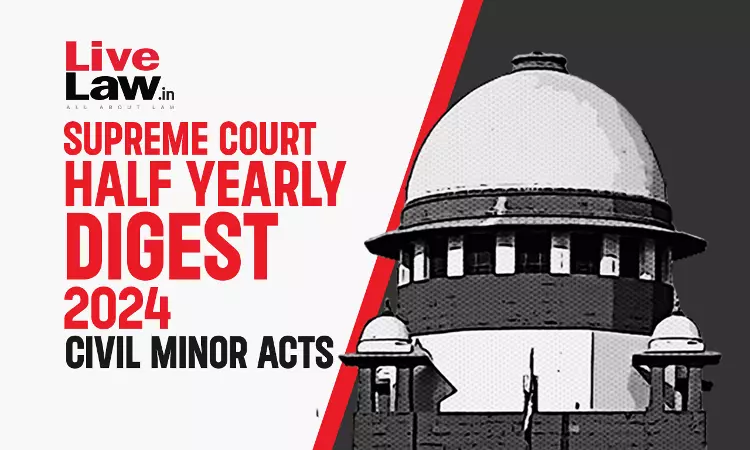Supreme Court Half Yearly Digest 2024 - Civil Minor Acts
LIVELAW NEWS NETWORK
4 Sept 2024 8:35 AM IST

Next Story
4 Sept 2024 8:35 AM IST
Agricultural Produce and Livestock Markets Act, 1966 (Andhra Pradesh)Ghee as a product of livestock – The inclusion of “ghee” as a livestock product cannot be faulted merely because it is not directly obtained from milk, which is a product of livestock, it would still be a “product of a product of livestock”. 'Ghee' is derived out of 'milk' by undergoing a process, yet it still...
